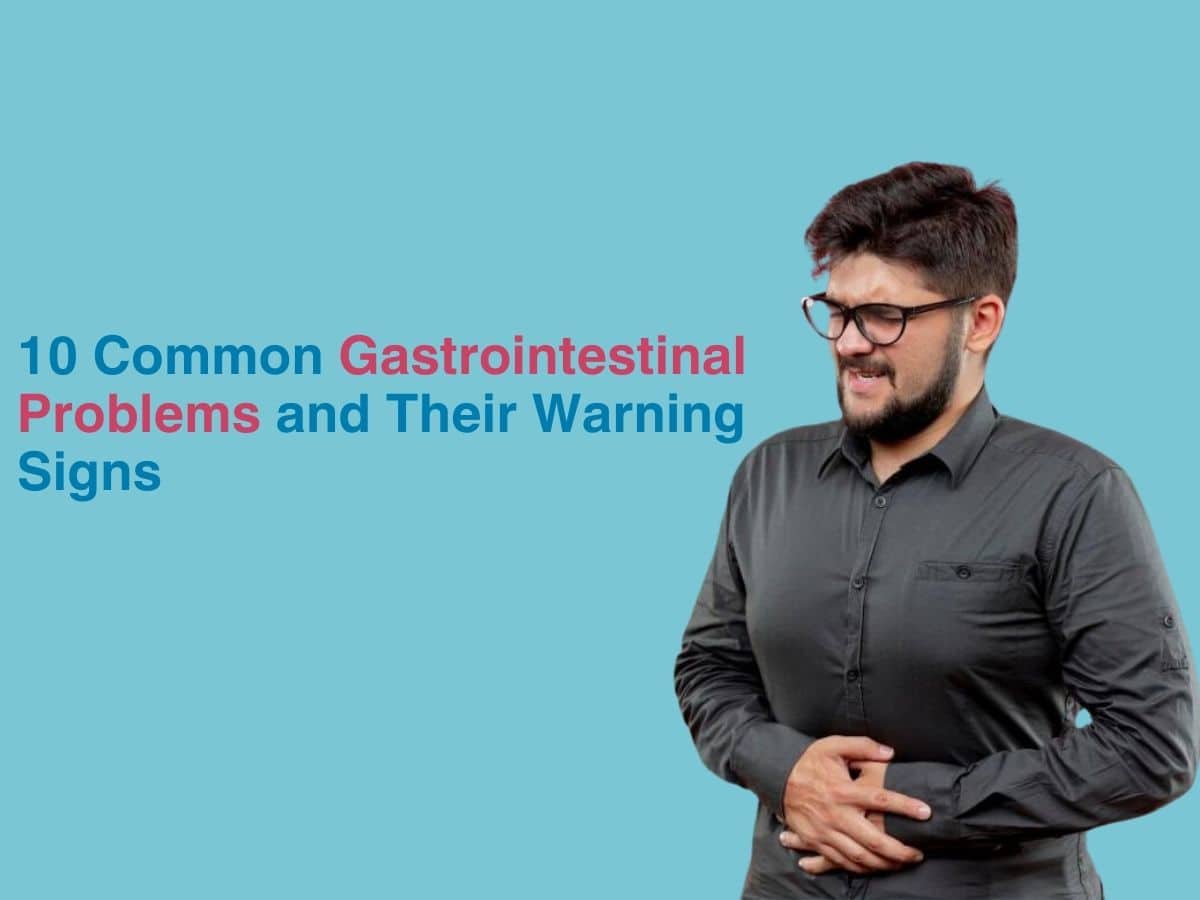
10 Common Gastrointestinal Problems and Their Warning Signs

The gastrointestinal system is a super elaborate interplay of multiple organs which help us in eating and digesting food very easily. The process is most often so seamless that we don’t really care about it at all. At times, you may face seemingly minor symptoms like acidity, stomach pain, diarrhoea, food intolerance issues etc. among many other conditions. We tend to ignore them and think they will go away on their own. If it is a minor issue, it will go away in a while but if you keep ignoring a symptom that shows up often, you are setting yourself up for some major trouble in the future.
How To Identify Common GI Tract Problems-
With functional issues, what happens is this- structurally everything looks normal in a scan but stuff won’t work like it is supposed to. Some of these very common conditions include nausea, bloating, IBS, constipation, diarrhoea etc. Structural GI problems are caused when the parts in the system don’t work normally- like a haemorrhoid, polyps, cancer, stenosis, strictures and inflammatory bowel disease respectively. You may require surgery to get better.
Some of the commonest problems, GI diseases and their causes, symptoms and treatment have been explained below-
- Constipation- when you eat a diet that is poor in roughage or fibre and don’t drink enough water, your stool may harden and you may need to strain while pooping. Keep straining and you may deal with haemorrhoids.
- Irritable Bowel Syndrome or IBS– You suffer from severe cramping, bloating and too much gas due to too much stress or because of change in routine, weather etc. The root cause for IBS is often never diagnosed. Symptoms may come if you eat trigger foods. You should talk to your doctor for more information and medication to manage the condition.
- Haemorrhoids – They can be internal or external and often will be managed with conservative approaches like a proper diet and hydration. But, you may be symptomatic more often than not and that can be really painful. Surgery may be suggested in a few cases.
- Anal fissures are cracks in the anus lining. It is super painful when exposed to air or while pooping. You may be given stool softeners and higher amounts of fibre and asked to use a sitz bath. But, if nothing seems to help, then surgery may be done.
- Fistula is a tube-like opening that is located near the anus, but instead drains out into the surrounding skin, carrying stool out. This can cause an infection over prolonged periods of time. Surgery is done to close the fistula off.
- Diverticulitis is another structural issue of the GI tract
- Colorectal cancer begins with the formation of polyps which are initially benign but then become malignant and attack other parts of the body too.
- Colitis– is an inflammatory condition of the bowel and is of different types- ulcerative colitis, Crohn’s disease, ischemic colitis, radiation colitis or due to an infection. Colitis can cause bleeding.
- Gastritis can cause indigestion due to inflammation of the stomach lining. The food you eat may trigger this event- like too much spice, alcohol, stress and infection.
- Appendicitis– The appendix is an organ which has no use but when inflamed, can be super painful and necessitates immediate surgical removal. Look for severe pain in your right lower abdomen, which may be caused due to the appendix filling up with mucus, stool or even parasitic worms.
Conclusion
Most of us don’t get screened for cancers because we think we won’t get affected. But, if you have a family history of GI cancer, then it makes sense to get checked every year, with a colonoscopy. The food you eat influences how your organs behave. So, if you eat foods that do not have fibre content in them, your normal routine keeps changing, not pooping because of haemorrhoids, overdosing on antacids or stool softeners, lead a sedentary life or if you are pregnant, then you may face gastrointestinal issues. The condition determines the symptoms and the treatment that you will be provided.
Frequently Asked Questions
What are the most common gastrointestinal problems?
What symptoms indicate I should see a doctor for stomach pain?
Are heartburn and acid reflux signs of a serious problem?
What does blood in stool indicate about gastrointestinal health?
How can I identify the symptoms of irritable bowel syndrome (IBS)?

Dr. Prudhvi Krishna Chandolu
MBBS, MD, DM
Consultant Medical Gastroenterologist, Hepatologist & Therapeutic Endoscopist






